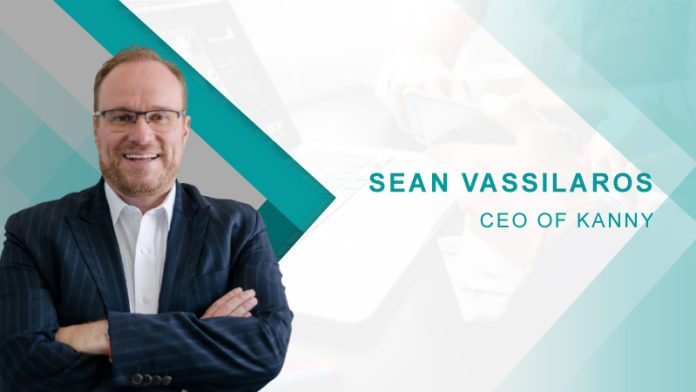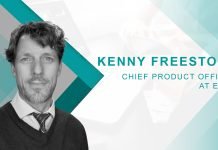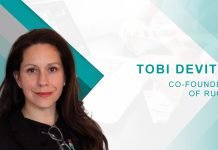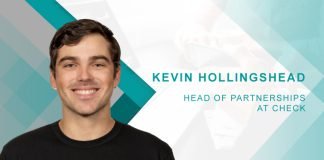Sean, it’s great to have you with us. Could you start by sharing your professional journey and what led you to become the CEO of KANNY?
First of all, thank you! It’s exciting to share KANNY’s story, which could never have been written without my own crazy career journey.
Like so many at the turn of the century, I leaped into the dot com market with both feet. Fortunately, a player in the healthcare/life sciences advertising space bought my company and opened my eyes to the huge opportunities in that industry. I then co-founded a company called THREAD, which revolutionized decentralized clinical trials. We were lucky to work with market-moving brands like Apple, Procter & Gamble, and Johnson & Johnson, and eventually secured a successful exit.
In each of my different companies the hiring process always felt the same. Same questions, same tools, same challenges. What my parents taught me to look for in friends or people to trust – their character – seemed to be missing in hiring. Now there is a lot of research out there confirming what my mom and dad already knew – what people do comes from their values. In a career setting, I call this “work character.”
KANNY was born from the idea that recognizing and rewarding work character will create a better work world for all of us. Our innovative platform revolutionizes hiring and talent development through peer-sourced character assessments. I serve as co-founder and CEO, along with an amazing team.
KANNY is known for its innovative approach to hiring through peer-sourced character assessments. How does this method reshape traditional hiring practices?
Today candidates provide, or curate, all of the information employers need to make a hiring decision. Resumes, cover letters, LinkedIn profiles, interviews, assessments, and even references are all created and controlled by the candidate. Recruiters and hiring managers then try to sort and analyze this information to get a true picture of the candidate’s skills and personality, just like a high stakes game of cat and mouse.
We wondered, “are we asking the right people the right questions” to reveal how the candidate is likely to perform? Then we thought, “who knows how I have done my jobs in the past? Would they share candid and anonymous feedback to future employers?”
So we set out to create a way for people to share their first-hand observations of a candidate’s work character. We ask about traits that have the biggest impact on individual and team performance, like integrity, humility, accountability, and resilience, and create a KANNY Report. Hiring managers use this unique data point in finalist interviews and selection.
How nice would it be to have verified feedback from people who really know to help make hiring decisions!
In today’s remote work environment, why do you believe character is becoming more important than ever for organizational culture?
I firmly believe that work character determines performance and shapes culture.
Want better performance? Model and reward better work character. Want a stronger culture? Again, model and reward better work character.
Remote work is a perfect example. It has been a huge shift in our economy, and it makes sense that there should be a similar shift in what we focus on in hiring and development. Managers crave accountability from their remote teams. Employees want accountability from their remote managers.
The Solution? Surface work character in interviews. Chart accountability in development plans. Speak openly, from the CEO down to the mail room, about integrity and humility. Then watch performance and retention foster a culture of commitment and achievement.
How does assessing work character influence employee performance and overall success within teams?
Sadly, everyone has a story about a mis-hire, often with damaging and traumatic effects on their organization. I have a few that haunt me to this day!
We cannot stress enough how strong work character impacts performance. Imagine a customer service supervisor facing high volumes of customer complaints. If he lacks resilience and accountability, he could become overwhelmed and disengaged, unable to motivate the team or manage their stress. The team’s performance suffers as complaints pile up and morale dips.
Now flip it around. The supervisor takes ownership of the problem and calls his team together to look for solutions. He holds himself accountable for fixing it and expects the same from his team members. They check in every day until things improve.
Is it a difference in skillset or qualifications? No, it’s a difference in work character.
What strategies does KANNY employ to integrate work character assessments effectively into the hiring process?
The KANNY Report is a powerful and unique data point to help uncover a candidate’s character. Both the employer and the candidate have access to the report so they are on equal footing going into an interview.
Interviewers guide candidate discussions by zeroing in on their work character traits. This approach saves time and cuts through so much of the cat and mouse game of today’s hiring process. For example, while interviewing a software engineer whose humility rating is below the KANNY average, imagine the value of asking this question: “How do you handle feedback during code reviews, particularly when you disagree with the reviewer?”
Since both parties have the KANNY Report it becomes an open conversation based on third-party feedback. The manager now has a roadmap from the start on how to develop and manage this candidate if she decides to extend an offer.
Understanding how a candidate’s colleagues rate their work character is a new and effective way to identify top performers. It is at the heart of KANNY’s mission.
Can you provide an example of how KANNY’s approach to work character assessment has significantly impacted a company’s hiring and team-building efforts?
The vision for our customer beta is to equip hiring managers with a unique data point to help them hire with eyes wide open. The feedback we’ve gotten from talent leaders and CHRO’s from large to local employers is that there is currently no way to reliably gather first-hand feedback on traits like motivation, kindness or integrity.
This approach has already made an impact on our own KANNY team. A couple of traits came back lower than average on my own KANNY Report and I went through a pretty typical cycle. At first, I rejected the data, saying, “Nah, they don’t really know me so this can’t be true.” Then came justification – “As an executive I’ve had to make hard decisions that impact people, so of course my scores are lower.” Finally, in talking with my co-founders, I decided to own it. “There is something here for me to learn.”
Taking that feedback seriously has started to change how I work and lead, from one on one interactions to meetings with investors. It makes a difference. Imagine the impact this kind of candid and dignified feedback will have on millions of workplaces across the country!
What personal strategies do you use to ensure that KANNY continues to innovate and lead in the field of talent acquisition?
One of the most effective strategies is to carve time into our schedules to meet in person. Being together generates incredible creativity. Right now our focus is on fine tuning the KANNY experience so that we are primed to help employers all over the country hire for work character.
We have co-founders and advisors who sit at the top of this field and they force the team to think differently, to see beyond today. How will KANNY harness the explosive force of AI? What will “character-forward” employers need in three and five and 10 years to recognize and reward talent with the kinds of traits that fuel performance in the new world of work? We are spearheading a movement towards work character and as it gathers momentum, we believe that innovations we never dreamed of will solve for what plagues hiring today
What advice would you give to organizations looking to incorporate character assessments into their hiring practices?
First, take it seriously. If your company wants to understand the work character of a candidate, the interviewer should be prepared to speak openly about their own traits. Otherwise it’s just lip service and people can sniff that out a mile away.
Second, prepare your hiring managers. Equip them with interview questions specifically tailored to spur candid conversations about the candidate’s traits.
Third, start incorporating work character into your learning and development strategies. No one is perfect, but top performers want feedback so they can keep growing.
As we look to the future, how do you see the role of character assessments evolving in the talent acquisition landscape?
A quote that inspires KANNY comes from Warren Buffet. “Somebody once said that in looking for people to hire, you look for three qualities: integrity, intelligence, and energy. And if you don’t have the first, the other two will kill you. You think about it, it’s true. If you hire somebody without [integrity], you really want them to be dumb and lazy.” (INC.com)
I believe that work character will soon be recognized as the single most powerful determinant of performance and company culture. Organizations wanting better performance will need to identify and recruit high character individuals. Companies with high character cultures will attract the very best talent.
It all starts with verified third-party candidate assessments like the KANNY Report, and I can’t wait to see where it goes.
Finally, what are your thoughts on the future of talent acquisition and the role of character in shaping successful and resilient teams?
People are any company’s most valuable asset. Finding the right people for an AI-driven economy will depend on changing the definition of “right”. It can’t just be about skills or degrees or even personality. We have to get deeper. We have to uncover and truly value work character.
The next generation of workers expects more than a paycheck, PTO, and a standing desk. They seek purpose. The best and brightest of the future will combine knowledge and character to unlock solutions to some of our biggest challenges.
Tomorrow’s best recruiters, talent leaders and managers will embrace work character as the defining trait of top performers. And watch the world change.

Sean Vassilaros CEO of KANNY
Sean Vassilaros is an accomplished entrepreneur and philanthropist dedicated to leveraging technology for positive societal impact. At the core of his work is a commitment to character and family, where integrity plays a central role in every pursuit. As the CEO of KANNY, he is leading the charge in transforming hiring practices through peer-driven character assessment. KANNY utilizes advanced technology to gather and verify feedback from previous and current colleagues, ensuring a comprehensive evaluation of a candidate's character while respecting the privacy of both parties. This approach fills a critical gap in talent acquisition, providing both job-seekers and recruiters with a vital tool to build high-achieving teams grounded in integrity and trust, given the importance character plays in building a successful culture.
Driven by a deep love for technology and a unique ability to communicate complex ideas with ease, Sean’s entrepreneurial journey started at the age of 21 when he co-founded his first company during the dotcom era. Two years later he sold the company and joined a prestigious Los Angeles agency to grow his skills serving the travel, entertainment and healthcare industries.
His career continued with notable IT and communications consulting roles which led to a position as Chief Operating Office (COO) for Ignite Health (Part of inVentiv/Syneos).
In 2012, Sean co-founded THREAD, a company focused on pioneering decentralized clinical trials, Under his leadership, THREAD revolutionized healthcare research, working on groundbreaking projects with acclaimed commercial brands such as Apple, Procter & Gamble, and Johnson & Johnson, academic institutions such as Johns Hopkins University, Duke University, UCSF, and USC, and the biggest pharma brands such as Novartis, Bristol Myers Squibb, and AstraZeneca. Sean remains an owner at THREAD and serves as a board observer, maintaining his connection to the company's ongoing success and innovation.
Sean sits on the Board of Directors for Spectrum Science, a full-service healthcare agency hyper-focused on health and science.
Sean also serves as an Adjunct Professor at Lehigh University, mentoring engineering students and leading international projects through the Creative Inquiry program.
Social responsibility and philanthropy are paramount to Sean, as exemplified by his establishment of the Hailey Mayz Foundation, a non-profit organization formed to honor the passing of his daughter, that has provided physical, speech, and occupational therapy to thousands of special needs children for over a decade. He currently serves as Chairman of the Board and oversees the strategic vision and direction for the Foundation.
He also currently serves as Chairman of the Board for OUR Rescue (previously Operation Underground Railroad) - the organization featured in the 2023 blockbuster movie “The Sound of Freedom”. He led them as the interim CEO through a turnaround during a challenging year. His visionary leadership and global humanitarian efforts inspire meaningful change worldwide.













